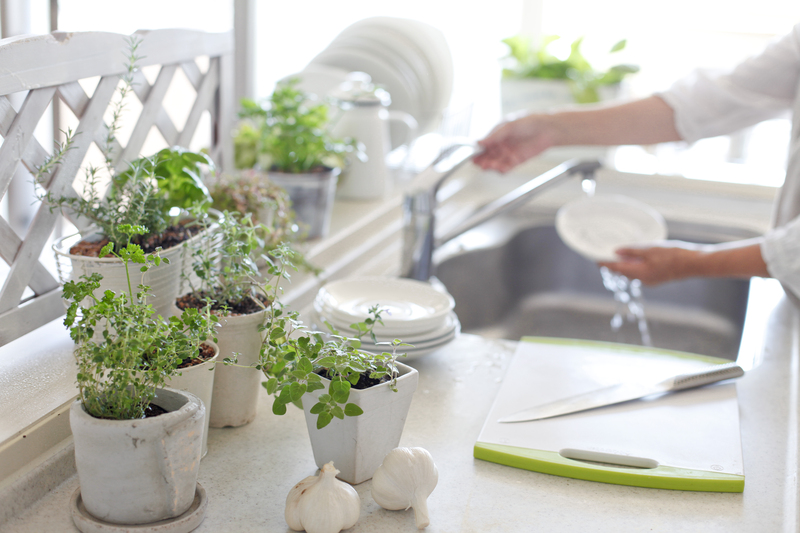9 Crucial Tips to Help Beginners Thrive in the World of Gardening
Posted on 18/06/2025
9 Crucial Tips to Help Beginners Thrive in the World of Gardening
Are you a budding gardener eager to transform your outdoor or indoor space into a flourishing sanctuary? If so, you're not alone! Every year, countless novices across the globe embark on their gardening journey, seeking the joy, relaxation, and satisfaction that comes with nurturing life from seedling to bloom. While the prospect is exciting, the path can seem daunting without proper guidance. That's why we've compiled these nine crucial gardening tips for beginners who want to not only survive but truly thrive in the green world of gardening.
1. Choose the Right Location for Your Garden
Location is everything in gardening. Before you put shovel to soil, observe your yard or indoor space to determine the best area for planting. Here are some essentials for selecting the perfect gardening spot:
- Sunlight: Most vegetables and flowers need at least 6-8 hours of sunlight daily. Examine your area throughout the day to spot where the sun hits most.
- Accessibility: Choose a space you can reach easily for regular watering, weeding, and harvesting. Proximity fosters consistency.
- Soil Quality: Good, well-draining soil is key to successful gardening. Avoid heavy clay and low-lying spots that tend to stay soggy.
- Protection: If you struggle with pests or strong winds, consider a sheltered location or install barriers like fencing.
Remember, getting your location right is the foundation for all your future gardening success!
2. Start Small and Gradually Expand
Ambition is great, but in gardening, starting small is wise. Overcommitting can lead to overwhelm and garden neglect, especially for beginners. Follow these tips:
- Begin with a few manageable beds or even large pots. Container gardening is a fantastic entry point.
- Focus on easy-to-grow plants like lettuce, herbs, radishes, or marigolds to build your confidence.
- Add more later as your skills and passion grow. Gradual expansion prevents burnout and costly mistakes.
By starting small, you gain practical experience and enjoy early wins. This positive momentum will fuel your passion for gardening!
3. Understand Your Soil
Your soil is the living base of your garden. Knowing its type, texture, and nutrients is paramount to the long-term health of your plants. Here's how you can get started:
- Perform a simple soil test: Most local gardening centers offer affordable kits or services. Testing reveals your soil's pH, fertility, and texture (sand, silt, clay, or loam).
- Amend accordingly: Add compost for organic matter, sand for drainage, or peat moss for water retention, based on the test results.
- Mulch generously to retain moisture, suppress weeds, and boost soil health.
Healthy soil makes healthy plants. It's the unseen hero that supports lush, productive gardens.
4. Choose the Right Plants for Your Climate
Pick plants that naturally thrive in your region's climate and growing season. Here's why:
- Native and climate-appropriate plants require less maintenance, water, and fertilizers.
- Check your USDA hardiness zone or similar regional map to identify plants resistant to local conditions.
- Pay attention to sowing and transplanting dates for annuals and vegetables.
Selecting the right plants for your environment is one of the best ways to maximize your chances of gardening success as a beginner.
5. Water Wisely and Consistently
Water is life, but too much or too little can spell disaster. Here are some watering essentials for new gardeners:
- Water in the early morning to prevent drought stress and limit fungal diseases caused by night-time moisture.
- Deep, infrequent waterings are better than frequent, shallow ones. This encourages deep root growth and improves drought resistance.
- Use mulch to reduce evaporation and keep soil moist longer.
- Install a soaker hose or drip irrigation system for efficient and consistent watering.
Learning the watering needs of different plants is fundamental for every beginner's gardening toolbox.
6. Feed Your Plants Properly
Just as humans need a balanced diet, so do your plants. Fertilizing correctly will ensure robust growth and abundant blooms. Here's what to remember:
- Use compost as a slow-release, all-purpose soil supplement. Compost also enriches your soil and boosts beneficial microbes.
- Consider organic fertilizers like fish emulsion, bone meal, or seaweed extract for natural nutrition.
- Always follow label instructions; overfertilizing can burn roots and harm plant health.
Feeding your garden well will reward you with lush foliage, vibrant flowers, and bountiful harvests.
7. Be Vigilant Against Weeds and Pests
Weeds and pests are relentless opponents in the world of gardening. Early and consistent action keeps your plants thriving. Follow these steps:
- Mulch garden beds to suppress weed growth and add nutrients as it breaks down.
- Check plants regularly for insects like aphids, beetles, or caterpillars. Remove them by hand or use natural remedies like neem oil.
- Encourage beneficial insects (– ladybugs, lacewings, and bees) that keep pest populations in check.
Dealing with weeds and insects proactively will make your gardening experience much more enjoyable and productive.
8. Keep a Gardening Journal
Document your gardening journey to track progress, learn, and improve. A simple journal or digital spreadsheet can make all the difference. Here's how:
- Record what you plant, where, and when.
- Note weather patterns, successes (and failures!), pest outbreaks, and harvest dates.
- Track soil amendments and watering schedules for improved planning next season.
Over time, your gardening journal becomes a personalized guidebook, reminding you of what works best for your unique space.
9. Embrace Patience and Continuous Learning
Perhaps the most important gardening tip for beginners is to embrace patience and keep learning. Gardening is a process of trial, error, and discovery. Remember to:
- Celebrate small milestones--the first sprout, bloom, or homegrown salad.
- Ask fellow gardeners, read books, join forums, and attend local workshops for fresh tips and inspiration.
- Don't be discouraged by setbacks--every mistake is an opportunity to grow your skills!
The world of gardening is vast and ever-evolving. With patience and curiosity, you'll find yourself thriving season after season.


Bonus Gardening Tips for Beginners
- Choose quality tools that fit your hand comfortably; ergonomic options protect against fatigue and injury.
- Label your plants, especially when growing several similar seedlings or experimenting with new varieties.
- Invest in a good pair of gloves to protect your hands from thorns, blisters, and biting insects.
- Stay consistent. Even a few minutes a day in the garden can make the difference between a thriving patch and a neglected plot.
Conclusion: Turn Your Gardening Dreams Into Reality
Gardening for beginners can feel overwhelming at first, but by following these nine essential tips, you'll set yourself up for a rewarding and successful experience. Remember to choose the right location, start small, nurture your soil, pick plants suited for your climate, water and feed wisely, control weeds and pests, keep a journal, and--above all--stay patient and eager to learn.
With every season, you'll gain skills, confidence, and joy from watching your garden grow. So dig in, get your hands dirty, and embrace the wonderful journey--your thriving garden awaits!
Happy gardening!
If you have your own tips, victories, or questions, share them in the comments below and join our growing community of passionate gardeners.
Latest Posts
Arm Your Garden Against Nature's Tempests
Optimize Your Garden with These Indispensable Tools
How to Winterize Your Garden Plants for Survival



